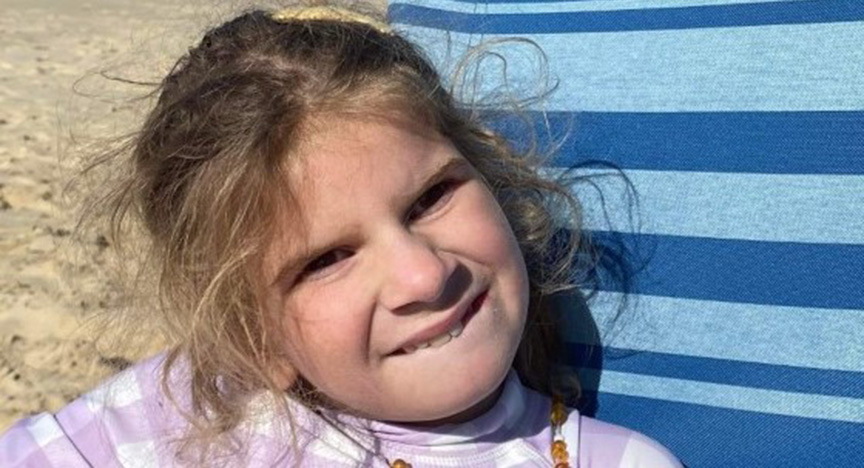
Maeve was admitted to hospital for the first time at 5 months old when a case of bronchiolitis landed her in intensive care for a week.
Her little body recovered from the bronchiolitis, but she started having trouble feeding and had to be fed by a feeding tube. Over the next few months, Maeve’s mum Sarah, noticed her development was lagging behind that of her older sisters Olive and Isla. When by 12 months old, Maeve still wasn’t eating solid foods and continuing to struggle with feeding from a bottle, Sarah knew there was something wrong.
“I asked our paediatrician for help as she was losing weight, not gaining any skills and I was struggling mentally, because I was so concerned about her wellbeing,” Sarah recalled.
While in the Queensland Children’s Hospital to have a feeding tube surgically placed through her abdominal wall and into her stomach to give her the nutrition and fluids she needed to grow, Sarah asked for an MRI scan in a bid to get some answers.
This led to Maeve being diagnosed with Leigh Syndrome, a severe mitochondrial disorder, at 18 months old. Leigh syndrome is a rare progressive neurometabolic disorder that affects the central nervous system. There is currently no cure.
“The day we received this news was unbelievably heart breaking. I remember not leaving the lounge room for days,” Sarah said.
Following the diagnosis of Leigh Syndrome, further DNA tests and genome sequencing was carried out to identify exactly what chromosomes were affected and if Maeve inherited the condition from her parents – the tests confirmed she didn’t. This finally gave the family some answers – and some peace.
“Until that time, it had been a long journey through the unknown, but now we can be at peace with it, and just live our best lives with Maeve now.”
Maeve, now 6, sees several specialities the Queensland Children’s Hospital to help her live comfortably, including speech therapy, occupational therapy, physiotherapy, dietetics and the metabolic medicine team.
“Every three months she receives Botox treatment in both legs and wears an ankle brace every day to help her walk – we are so blessed that she can still get around,” Sarah says.
Maeve also has her eyes checked every couple of months, and her heart checked every year.
“Maeve is an absolute trooper and is the strongest person I’ve ever met. Yes, there’s tears when she’s having needles or doesn’t want to go into the hospital, but she always has a smile on her face at the end. She doesn’t know life any different to what it is now and has been.”
“Looking at where we are now, and have been since Maeve was a baby, has changed our family for the better. We are extremely close and resilient. Maeve has taught us that we have one life, no matter how long or short”
The family have used their experience to help others by lending their support – and Maeve’s name – to the Mitochondrial Donation Law Reform Bill. In March 2021, the Bill (known as Maeve’s Law) was passed by the Senate, legalising mitochondrial donation for research, training and human reproductive purposes. These reforms are aimed at preventing people with severe mitochondrial disease from transmitting it to their children.